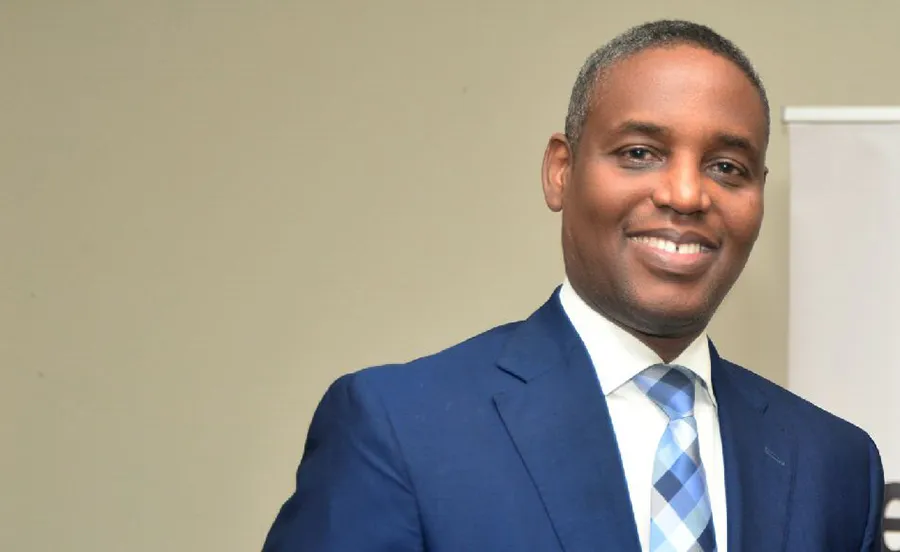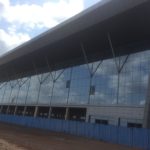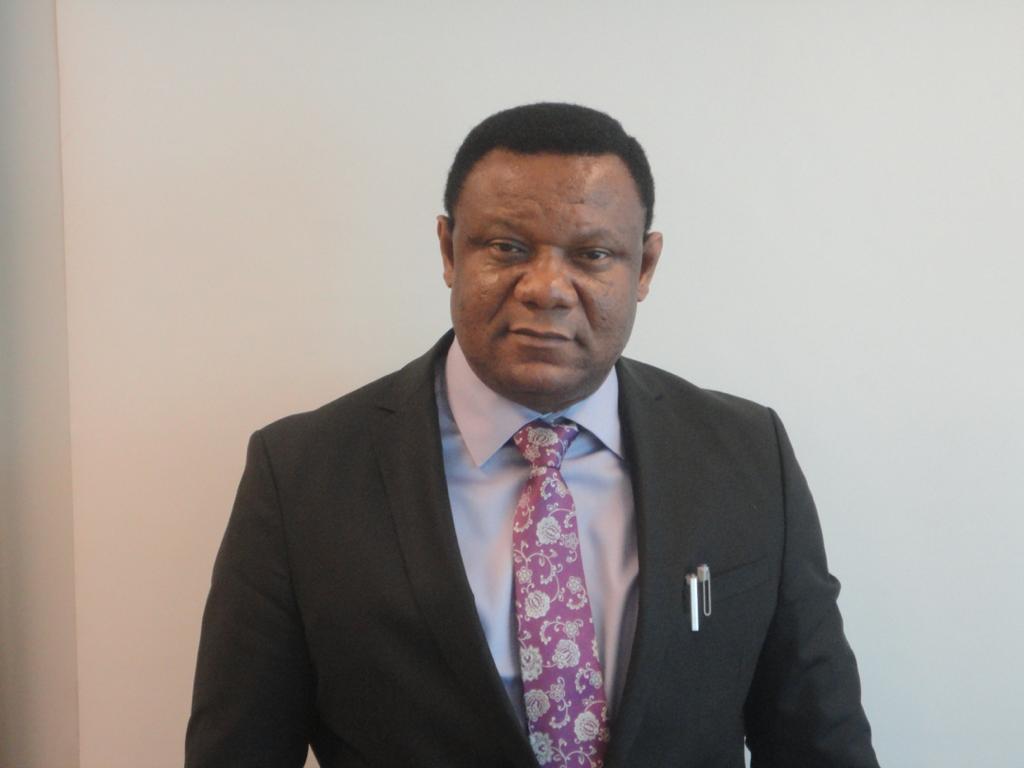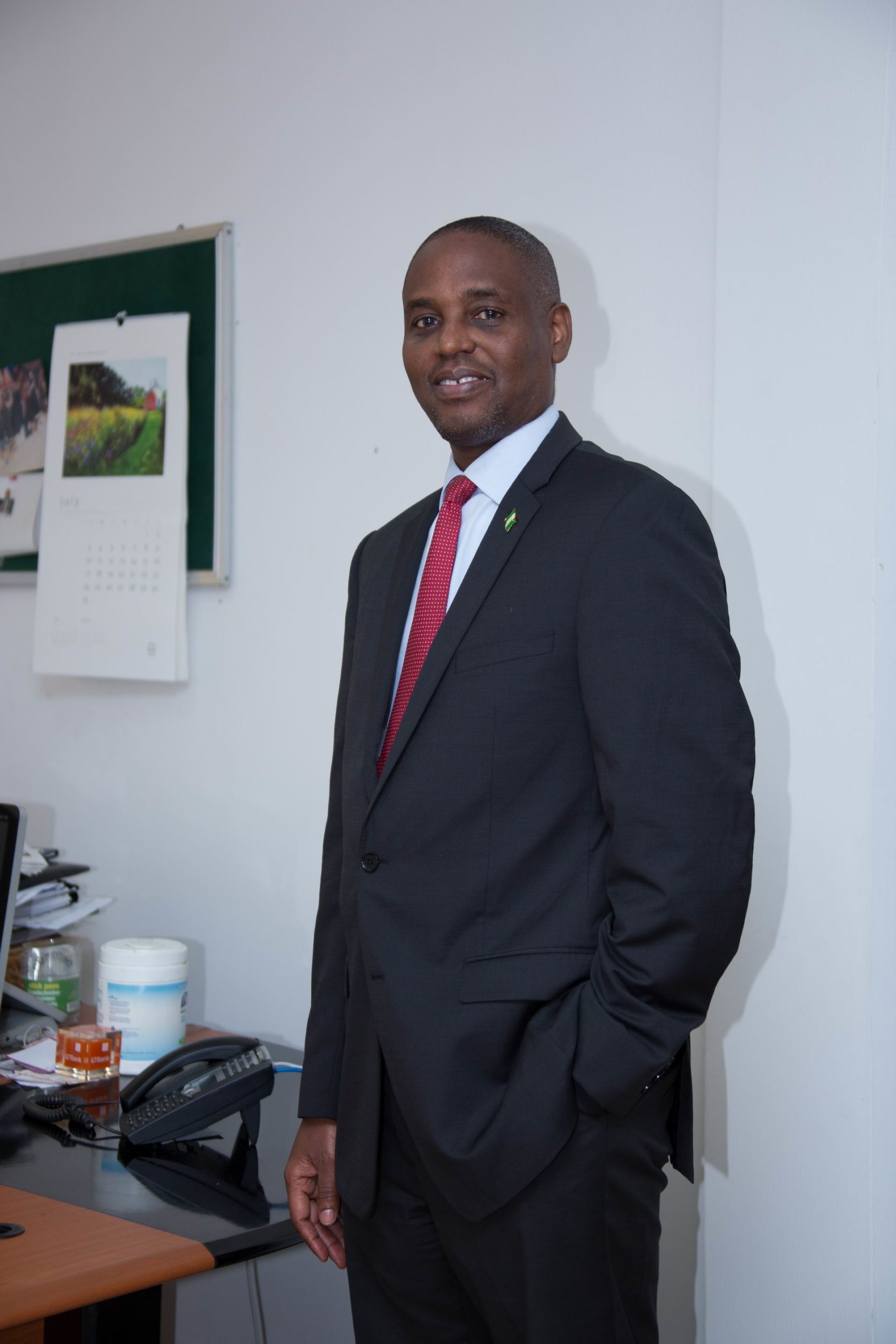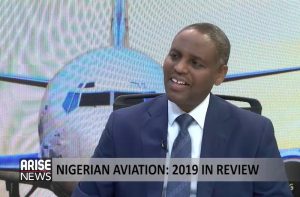
The Managing Director and CEO of Aero Contractors, Captain Ado Sanusi, speaks about the factors retarding development in the aviation industry; why airlines record stunted financial growth despite their commitment and suggests ways the industry can grow.
What has been recurring in the aviation industry over the years is that airlines will start operation with great optimism but over time it will start struggling to survive. Why is this a consistent trend?
You see, the aviation industry in Nigeria is still in its infancy stage. Despite the fact that air transport has been here for over 100 years. I commend the Hon. Minister of Aviation and Aerospace Development, Festus Keyamo, for the passion that he has brought into the industry and his commitment to turn thing around. But I think we are a bit stagnant in the reforms that we need to make to ensure that we sustain the growth and the tempo that the Minister has brought in. As you noted; an airline will start operation with optimism and there will be hope for that airline; then all of a sudden, it joins the rest of the struggling airlines.
Then definitely there is a problem in the system. And what I have seen, and I think it is not peculiar to the aviation industry, it is something that is across the sectors of our economy. We tend not to have strong institutions. If we have strong institutions, if let’s say, our regulator is very strong and well respected, let’s say, our service providers are very strong, then it will give the environment strong growth and sustainability.
But the moment these institutions are not strong, then they will be open to political manipulations and that will stifle growth in any organization. So, I think we must address those things, especially in aviation. I keep saying that the Nigerian Civil Aviation Authority (NCAA) is the sole regulator in the industry and it should be so and be respected.
And you know, when I was in NAMA (Nigerian Airspace Management Agency) and when Dr. (Harold) Demuren was in NCAA, we had a very strong institution. I remember there is what we call the Joint Intelligence Board, which sits in the National Security Advisor’s office. Demuren used to chair that meeting with the heads of all other government agencies, including Customs, Immigration, police; gathering intelligence and making sure that things are done right. When I was in NAMA, we had that meeting with Demuren to tell him our challenges and everything and he would take it to that level. And those are the kind of initiatives that created a very strong organisation.
I don’t know whether they still do the Joint Intelligence Board. If they don’t, I would strongly advise the National Security Adviser to please reintroduce this Joint Intelligence Board, which brings all the players, all the stakeholders, police, customs, immigration, under the chairmanship of the NCAA in the NSA’s office to ensure that the intelligence gathering, things that are affecting the aviation industry are addressed. This is because Immigration, Customs, police can give information that can help. Strong institutions guarantee a secured environment, which is our own fertilizer for growth of airlines.
If from year-to-year Nigeria is not adding up to three to four million passengers to the total number of air travellers, it means that less number of people are travelling annually. Is there anything the airlines can do to improve the situation?
But you know, you cannot be more efficient than the system you operate in. If I am overtaxed, if I am overregulated, if I am restricted by infrastructure that I cannot land at night, what else can I do? I am left with very, very, very few things to do to innovate or to organically stimulate the growth or bring the passengers in. Yes, we can debate it, that the airlines must do something to grow the passenger, but you can’t be more efficient than the environment you are operating in. And if there are already limiting factors in that environment, there are very few things that you can do to innovate it.
Okay, when you look at this price now, I mean airfares, sometimes you see that the places where there are more airlines, like during Christmas time, flights were going up to maybe N300,000, N400,000, N500, 000 one way. It was incredible.
Last month, the return flight from Warri to Lagos was N570,000. What triggered the high price?
No, no. You see, all those prices that you see that are quite high are called demand. The airline has seen that there is a lot of demand going on. It is going to happen during the Easter period. Our eastern brothers are going to go to the East and the demand will be high and the tickets will be high. And it is wrong. This is not how we used to do it. This is not a sustainable way to grow an industry.
It is not a sustainable way to grow an industry. I believe when there is a festival or when there is something, that is when you should even reduce your prices; so that you can get more people to travel. In doing that you will be bringing more new people, new entrants into flying experience.
So, you are organically increasing your base in the long run. But in the short run, you are thinking, oh, let’s get as much as we can get at this period. But what you are doing is you are limiting your opportunities because now people that would have entered and have an experience of flying will go and enter the bus. When everybody was increasing price, Aero Contractors reduced price to N80,000 at that period. And what did we do? Why did we do that? We wanted to give people that would have probably gone to enter a bus to have the experience of flying, to understand that we sell safety and speed. And we have seen that a lot of people have experienced the flight and would like to fly. So, I think that is the way to organically grow the passenger base in a sustainable manner.
What are the key things government must do to open the market more?
Well, stronger institutions, it is very, very key. I think I will appeal to the government to ensure that, our regulator in the industry, should be given the full autonomy, should be given the full power to be the regulator. And institutions, or ministries and agencies should not work in silos. For example, if Customs, Immigration, foreign affairs want to relate with aviation, they should talk with the Director General of NCAA (DGCA). The first point of call is the DG CAA. Everywhere in the world, the DGCA will be the first person to call if you are going to have an experience of flying.
So, give that institution the power. And then they should not walk in silo (isolation), they should walk together in the aviation industry. Look at how CBN is. CBN is well respected among the banks, among even the financial institutions. That is how Nigerian Civil Aviation Authority should be. So, if government can do that it will help to build strong institution in aviation.
Government should also break that vicious cycle of telling the airlines to fund the parastatals. You know, the airlines are struggling, the parastatals are struggling. And you expect to grow. And then now you are taxing the parastatals and deducting 50% at source. And then you are now, the parastatals are now taxing more on the airlines. You can never tax yourself to greatness. Never tax yourself to greatness.
So, if government wants airlines to grow, the aviation industry to grow, I think that vicious cycle must be broken. And we have been doing this for a long period of time. We must have another source of funding for some of these parastatals and then have one tax to the airlines, so that they can reduce their taxes, reduce the prices of their tickets and have more people coming to fly.
Recently, there was a report on court judgement concerning Aero Contractors and advertising agency over debts. What really happened?
There was an agency responsible for sensitizing the public on some of the things we do on our social media platforms, but we do not advertise on these platforms. We are giving information of flight delays, flight cancellations and sometimes we tell them of our new routes that are coming up. When we advertise, we advertise on billboards, televisions and radios and print media and we do follow the rules. But they came and said that what we were doing was illegal.
But what I do understand is, they are the agency responsible and they own the tribunal. So, you can’t be a judge and they are the agency and they own the tribunal. And my staff has been going there, but unfortunately, they said that there is a court case and everything. So, it is under court now, so I wouldn’t want to comment on it.
Aero Contractors appears to be maintaining a lot of aircraft. I see both Nigerian and foreign owned aircraft in your hangar. Is this true?
Yes, we have a lot of airplanes that we are maintaining. We have one from Ghana, we have Transair from Senegal and as you can see we have ones from Nigeria. And we are improving the hangar to accommodate Boeing 737 engines and Airbus A320s. So, we intend to move forward.
What we want is for the MRO to be a one-stop shop for West and Central Africa. So that is what we are doing and we intend in the next year or so to equip it to that level. We can then conduct checks on Bombardier CRJ, Boeing B737, Airbus aircraft, Embraer 145s and probably even the newer ones, the Embraer E195-E2s and the rest. We are all looking at that. Already we are doing line maintenance for Boeing 737 MAX.
How are you sourcing funds to carry out the expansion of your maintenance facility?
Yes, can ask the Asset Management Corporation of Nigeria (AMCON) that question, but I was informed reliably that there are a lot of investors interested in investing Aero. Aero has a very good reputation which we pride ourselves in. And I think anybody that is invested in Aero will definitely have a very good return of investment.

Is Aero still under AMCON?
We are still under AMCON. And this new AMCON management has been very key in trying to ensure that our very wonderful story turns into a success story. You know, in Nigeria, there are so many wonderful, amazing stories that never turn into success stories. But I commend this management, AMCON management. I think they understand this wonderful, amazing story that we started from 2017. I think they are committed to making it into a success story.
So, subsequently what are you adding to your fleet?
Callyair has collaboration and they are bringing two CRJ 1000, it will come to join to our two Boeing B737 and our own B737 is coming out. So, we probably have about five airplanes very soon by the end of April or early May.
Since the 2020 Covid-19 lockdown Nigerian airlines have faced capacity issues. When do you think the minister’s efforts on Cape Town Convention will start yielding fruits?
The minister has done well by removing Nigeria from the blacklist of lessors and brought Nigeria back to good reckoning with the Cape Town Convention. He did very well in that direction. But again, we need to do more. We need to have international financiers supporting our airlines because the local banks cannot do it with the loans they give at 28 to 32 per cent interest rate. If you buy or lease aircraft with such loan, you will lose. But your counterparts outside the country are getting single digits interest on loans. The worst you get probably is 9%. Some of them are getting at six per cent. Some of them with the good ratings are getting even 4. 5 per cent. And you can’t compete when you have 28% with a single digit of nine per cent, even if you go nine per cent, you can’t compete.
So, Cape Town Convention, yes, it is a step in the right direction. But again, if ministries and agencies work in silos, it will affect our Cape Town Convention. Because if customs, if immigration, if our court system don’t understand the Cape Town Convention and then you hear that an airplane has been impounded or court order has said it is impounded, it will bring down our rating. So, it is extremely important that all these ministries, agencies don’t work in silos, especially when it comes to aviation.


